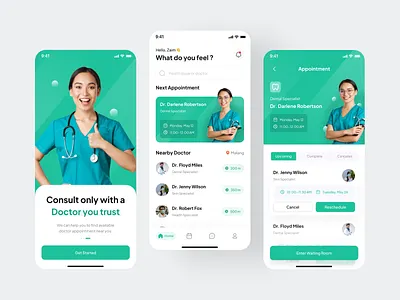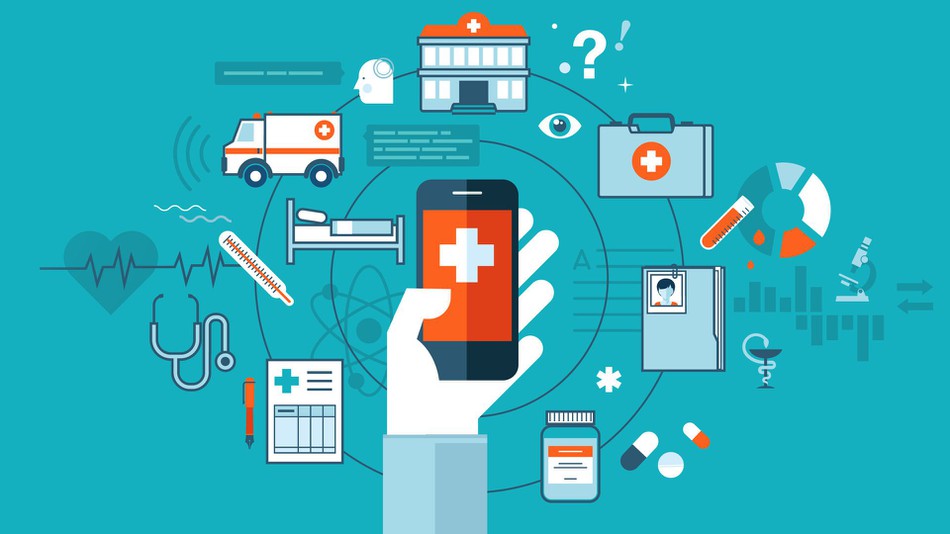The Future of Healthcare: Why Clinics Need a Mobile App Today
As the healthcare landscape proceeds to advance, centers face mounting pressure to adapt to patient expectations for greater ease and access. The integration of mobile applications can serve as an important approach for enhancing patient engagement and enhancing operations.
Altering Patient Assumptions
As the landscape of health care advances, person assumptions are undergoing a considerable change. Today's patients are progressively looking for benefit, access, and customized treatment. With the rise of modern technology, specifically mobile applications, people now prepare for a seamless combination of healthcare solutions right into their day-to-days live. They prefer the capability to handle consultations, access medical records, and connect with medical care companies with their mobile phones, showing a change in the direction of a more aggressive technique to wellness monitoring.
Furthermore, patients are ending up being much more educated and encouraged, frequently researching treatments and conditions on-line prior to assessments. This enhanced understanding is coupled with a demand for transparency in health care procedures, including expense quotes and therapy alternatives. Because of this, companies are compelled to adjust by adopting digital devices that improve the patient experience.
The assumption for efficient and prompt communication has never ever been higher, with many patients taking into consideration responsiveness a crucial element of quality care. mobile app for clinics. In this progressing landscape, healthcare companies should acknowledge these changing assumptions and utilize mobile applications to foster an extra patient-centric method, making sure that they not only satisfy however go beyond the requirements established by today's informed customers
Enhancing Person Interaction

Mobile applications assist in communication in between clients and medical care providers, allowing real-time visit organizing, tips for medicine adherence, and straight messaging attributes. These performances not just boost convenience yet also develop a feeling of liability amongst clients. In addition, mobile apps can provide academic web content customized to individual demands, helping individuals much better recognize their conditions and therapy options.
The integration of gamification components within health care apps can additionally encourage individuals to involve in healthy habits, strengthening positive lifestyle adjustments. By tracking progress and gratifying accomplishments, clients are more most likely to stay committed to their health and wellness goals. Inevitably, enhancing person interaction through mobile applications brings about enhanced health outcomes, greater individual complete satisfaction, and a more collective medical care experience. Facilities that prioritize this facet will likely see a significant influence on the top quality of treatment provided.
Improving Facility Operations
Simplifying clinic operations is necessary for enhancing operations effectiveness and optimizing individual treatment. The implementation of mobile applications can substantially minimize administrative worries, enabling medical care companies to focus extra on client interactions. By automating appointment organizing, individual check-ins, and billing procedures, centers can minimize wait times and boost overall functional performance.
Mobile applications likewise help with real-time access to individual records, enabling medical care experts to make enlightened choices promptly. This immediacy not only improves the top quality of treatment yet additionally decreases the likelihood of mistakes linked with misplaced or outdated info. Additionally, leveraging mobile innovation sustains a much more well organized technique to taking care of client follow-ups and therapy strategies, ensuring that no essential actions are neglected.
In addition, mobile applications can enhance inventory management by offering clinics with tools to keep track of drugs and materials effectively. This allows for prompt replenishment and helps prevent disturbances in patient treatment because of equip shortages. By incorporating these performances into their everyday procedures, facilities can create an extra cohesive and reliable environment, eventually bring about enhanced client results and satisfaction. Welcoming Recommended Site mobile modern technology is not just a fad; it is a required advancement in the medical care landscape.
Improving Interaction Networks
Efficient communication is regularly pointed out as a keystone of high quality health care shipment. In today's hectic medical setting, mobile applications can considerably boost interaction channels between centers, people, and health care service providers. By integrating mobile apps right into their procedures, clinics can promote real-time communications, guaranteeing that people obtain timely info concerning their consultations, test results, and treatment strategies.
Mobile applications also empower people to interact directly with their medical care teams via safe messaging functions. This straight line of interaction promotes a sense of interaction and allows for instant explanation of worries, which can bring go to website about far better adherence to therapy methods. Additionally, press notifications can remind people of upcoming visits or medicine schedules, reducing no-show prices and enhancing overall health and wellness end results.

Staying Affordable in Health Care
In a rapidly progressing medical care landscape, organizations need to prioritize technology and adaptability to maintain an one-upmanship. The assimilation of mobile applications into medical care services is no much longer optional; it is important for centers intending to improve individual interaction, enhance operations, and boost overall solution shipment.
As people progressively rely upon electronic systems for health and wellness administration, facilities that fall short to embrace mobile technology risk falling back. A well-designed mobile app can provide features such as appointment scheduling, telemedicine consultations, and access to medical documents, providing individuals with comfort and promoting loyalty.

Rivals are additionally investing in informative post mobile options, so staying in advance calls for continuous improvement and remaining educated about technological advancements. Clinics should not just execute mobile applications yet additionally participate in normal updates and improvements. Inevitably, the effective integration of mobile technology will certainly identify forward-thinking health care companies and established the benchmark for patient-centric care in a digital world.
Conclusion
To conclude, the combination of mobile applications in clinics is necessary to resolve the progressing landscape of client expectations. By improving patient involvement, improving procedures, and enhancing interaction networks, facilities can substantially increase wellness results. Additionally, the fostering of mobile technology settings clinics to remain affordable in an increasingly electronic medical care setting. Inevitably, the calculated implementation of mobile apps represents an important step towards delivering tailored and accessible health care, thus meeting the demands of today's empowered clients.
Eventually, improving person engagement via mobile applications leads to improved health and wellness results, better person fulfillment, and an extra collaborative medical care experience.Mobile apps additionally assist in real-time accessibility to patient documents, allowing health care experts to make informed decisions swiftly. In today's fast-paced clinical atmosphere, mobile applications can significantly boost communication channels in between clinics, individuals, and healthcare carriers.Mobile applications also empower patients to communicate straight with their healthcare groups with protected messaging functions. Eventually, the strategic execution of mobile apps represents a critical action towards providing personalized and accessible healthcare, therefore fulfilling the needs of today's empowered individuals.